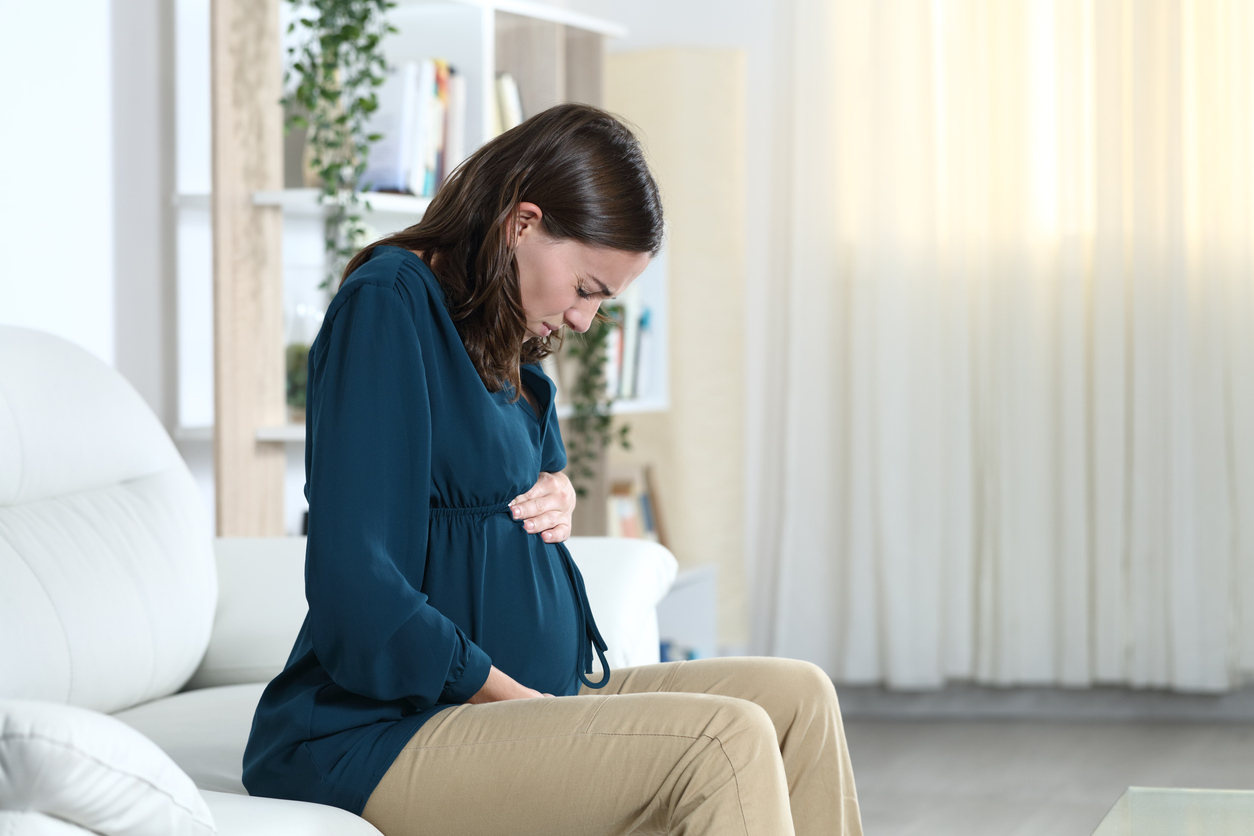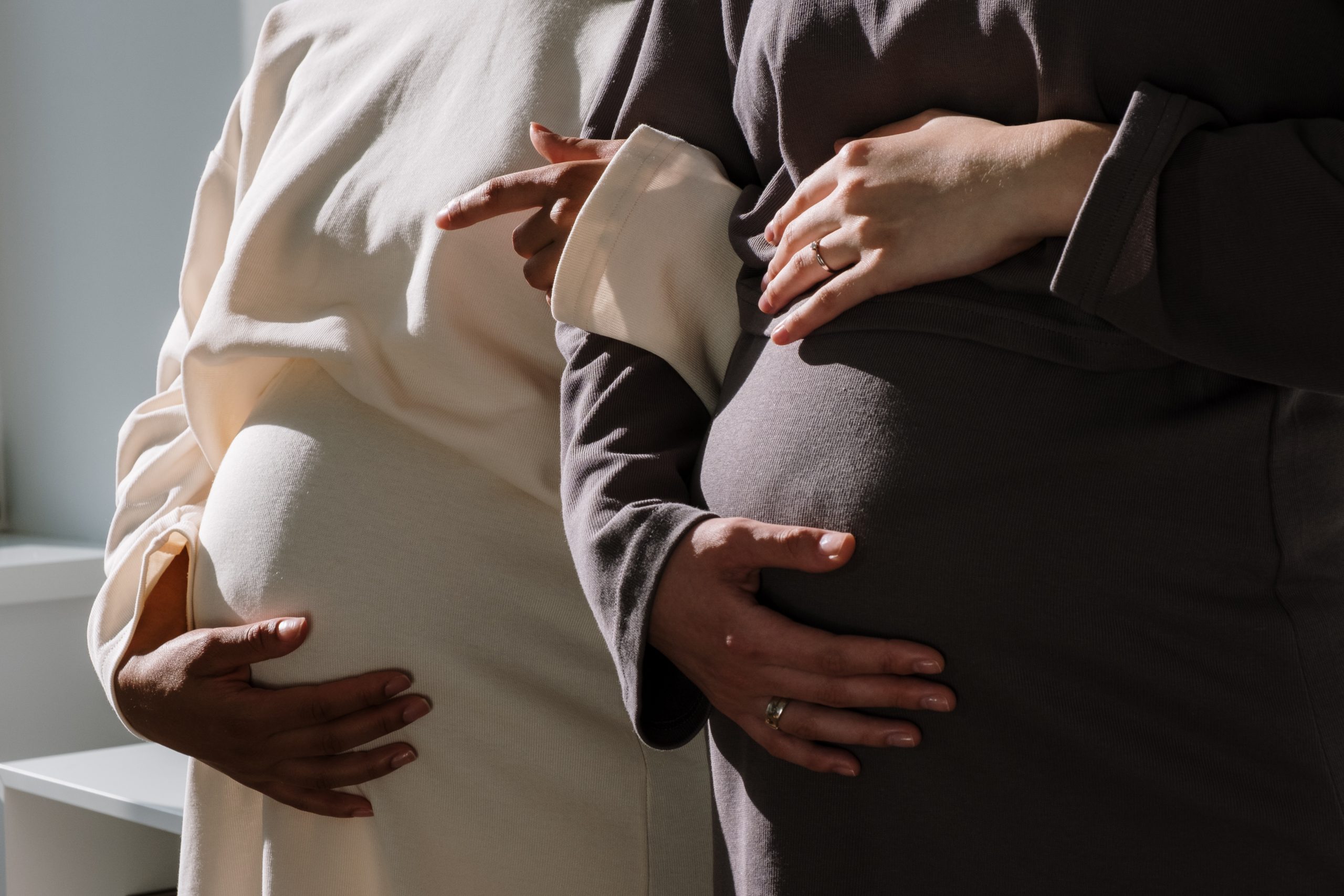Introduction
Spotting during pregnancy is a common occurrence. About 25% (1 out of 4) of all pregnant women spots. Spotting might not be a serious problem and may occur in healthy pregnancies, usually during the first twelve weeks of pregnancy (Williams et al.,1992). Many women that spot during pregnancy eventually have a medically fit baby. However, spotting could be a sign of miscarriage (when the fetus is lost before 20 weeks of pregnancy) or other serious complications (DeVilbiss et al., 2020).
Spotting is defined medically as a light vaginal blood flow during pregnancy or could be during menstrual flow. It is presented as a light drop, brown, and does not require an absorbent sanitary pad but a panty liner. In some instances, especially when there is heavy spotting, it could be seen as red. However, it is important to know the difference between spotting and bleeding and how important it is to talk to a health care provider (Weiss et al., 2004).
Spotting is different from bleeding. Bleeding is when there is a heavy flow of blood like during normal menstruations. It is appropriate to contact your doctor if you are spotting during pregnancy or bleeding for the right medical advice (DeVilbiss et al., 2020).
A recent study shows that about 10% and 30% of people who deliver full-term, healthy babies experience spotting at a certain point during pregnancy. However, if spotting is seen during their second or third trimester they should contact their doctor immediately to rule out any more serious pregnancy complications (Bever et al., 2018).
Causes of Spotting During pregnancy
These are the common cause of spotting during pregnancy:
- Subchorionic hematoma: This is when bleeding occurs between the uterine and chorion. Chorion usually forms a protective membrane for the embryo during implantation into the uterine wall. It eventually develops into the placenta. Subchorionic hematoma in early pregnancy may likely results in preterm delivery or abortion. It can be detected during an ultrasound session.
- Ectopic pregnancy: This is when the embryo is not implanted within the uterus. Embryos can not be carried to full term because they can not survive outside the womb. Ectopic pregnancies can be life-threatening and require urgent medical attention.
- Cervical irritation:The cervical canal may respond to irritation by bleeding. Irritation to the cervix could occur post-sex or during the examination of the pelvic or when there is a severe injury to the cervix (such as abuse). The occurrence of spotting during pregnancy might not be a serious issue because the cervix increases its blood supply in pregnancy. However, seek medical help when you notice unusual bleeding during pregnancy.
- Pregnancy loss or miscarriage: Pregnancy loss is another major cause of sporting or bleeding. It is known as a miscarriage when it occurs within 23 weeks of pregnancy. However, some experience light spotting, which may not result in pregnancy loss in case of threatened abortion.
- Hormonal shifts: In the first 6–8 weeks of pregnancy, there is a shift in the luteum and placenta, when the placenta is well developed for hormones needed for the pregnancy. The luteum is also responsible for pregnancy hormones. It is these changes in hormones that trigger progesterone temporarily.
- Implantation bleeding: Implantation occurs when a fertilized egg attaches to the wall of the uterus. It is the start of pregnancy and there might be spotting in some women because the body produces human chorionic gonadotropin (hCG) only after implantation.
- Cervical Ectopy: This occurs when there is a disruption to the position of the uterus or cervical canal cells. There is a tendency of bleeding with slight irritation to these delicate cells.
- Cervicitis: This could be sexually or non-sexually transmitted infections (such as bacterial vaginosis or irritation from a diaphragm , or an allergy to the latex in condoms), (Gomez et al., 2005).
- Placenta previa: Placenta previa is an abnormal condition due to the placenta being placed over the opening to the cervix. It is another cause of spotting during pregnancy.
- Gestational trophoblastic disease: Some pregnant women have masses of
- tissue in the uterus visible on ultrasound images. This is known as gestational trophoblastic disease and is another cause of spotting during pregnancy.
When to Worry About Spotting During Pregnancy
It is important to notify your doctor about any spotting in pregnancy. It may be harmless, but it is impossible to diagnose its etiology without blood work, an ultrasound, or other diagnostic tests. A pregnant woman should also visit a health facility if:
- They develop a fever,
- Spotting gets heavier over several hours,
- There are large clots in the blood,
- They have cramps,
- They have severe pain in the abdomen,
- They feel dizzy or lightheaded.
Diagnosis
The doctor can only diagnose bleeding after thorough tests have been carried out. These includes:
- Ultrasound: It can help detect subchorionic hematoma, and can also show the location of the embryo, whether the fetus is growing well, and whether there is an adequate detectable heartbeat. It can also be used to check the pelvic for causes of spotting or bleeding such as ovarian cysts (Laughlin et al., 2009).
- Blood tests: Blood tests measure hormone levels during pregnancy which can show whether the embryo is not developing correctly.
Treatment of Spotting During pregnancy
Treatment of spotting during pregnancy depends on the cause, her suitability, personal preferences, and availability of resources. They include:
- Bed rest or more naps is usually recommended as a treatment for bleeding or spotting such as taking time off from work and staying off your feet for a little while.
- Staying well hydrated.
- Limit your physical activity.
- Elevate your feet when possible.
- Avoid lifting items over 10 pounds.
- Not having sex or using douche or tampons.
- Misoprostol: Doctors may prescribe misoprostol (Cytotec), to help manage a pregnancy loss. Misoprostol often replaces the need for dilation and curettage; a procedure that removes tissue and other contents from the uterus.
Conclusion
Seeking medical attention and not panicking is the best especially when you have lost a pregnancy before. Prompt medical care is the best way to relieve anxiety. Do not try to diagnose the cause of your bleeding or link it to loss of pregnancy, (Hasan et al., 2009).






